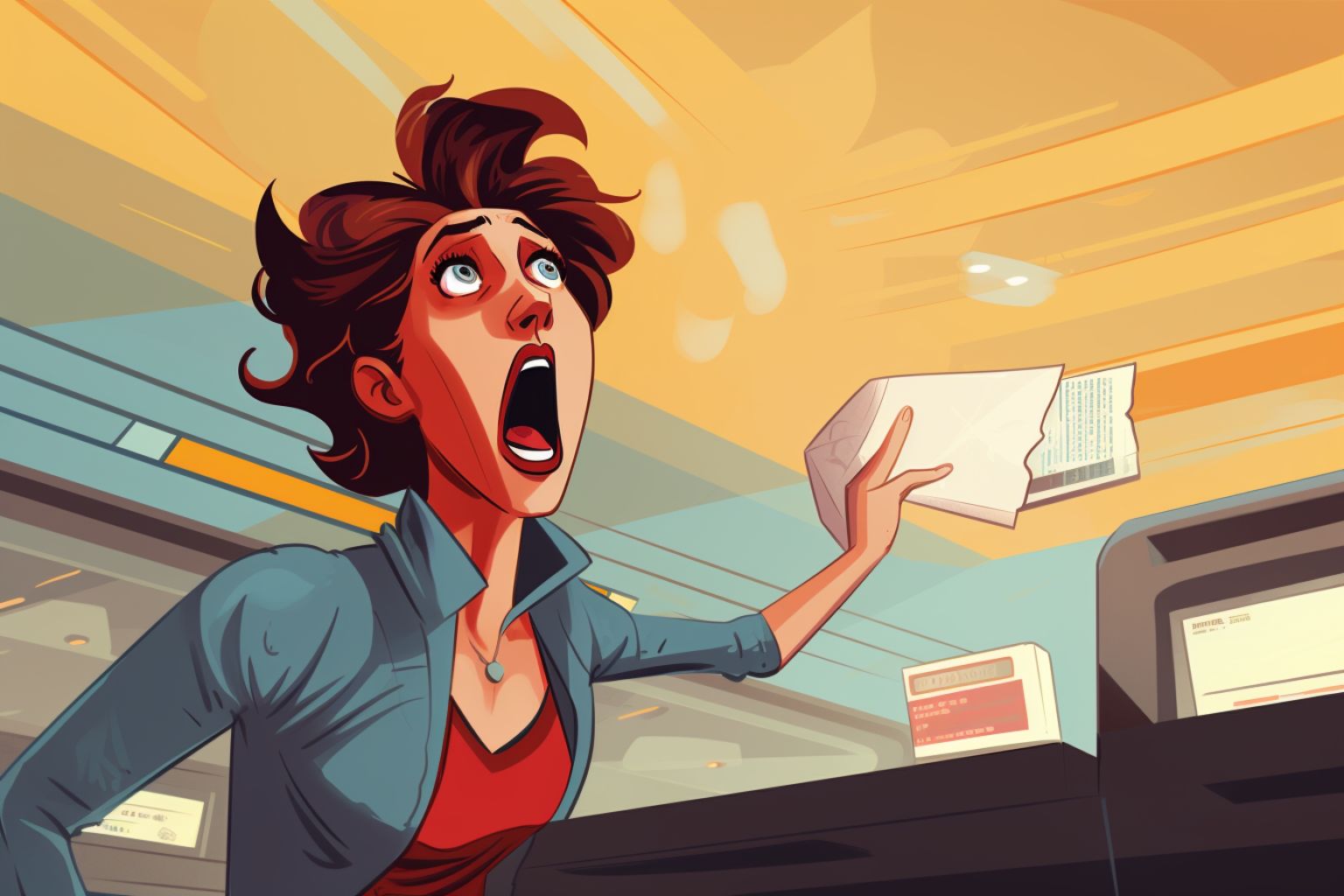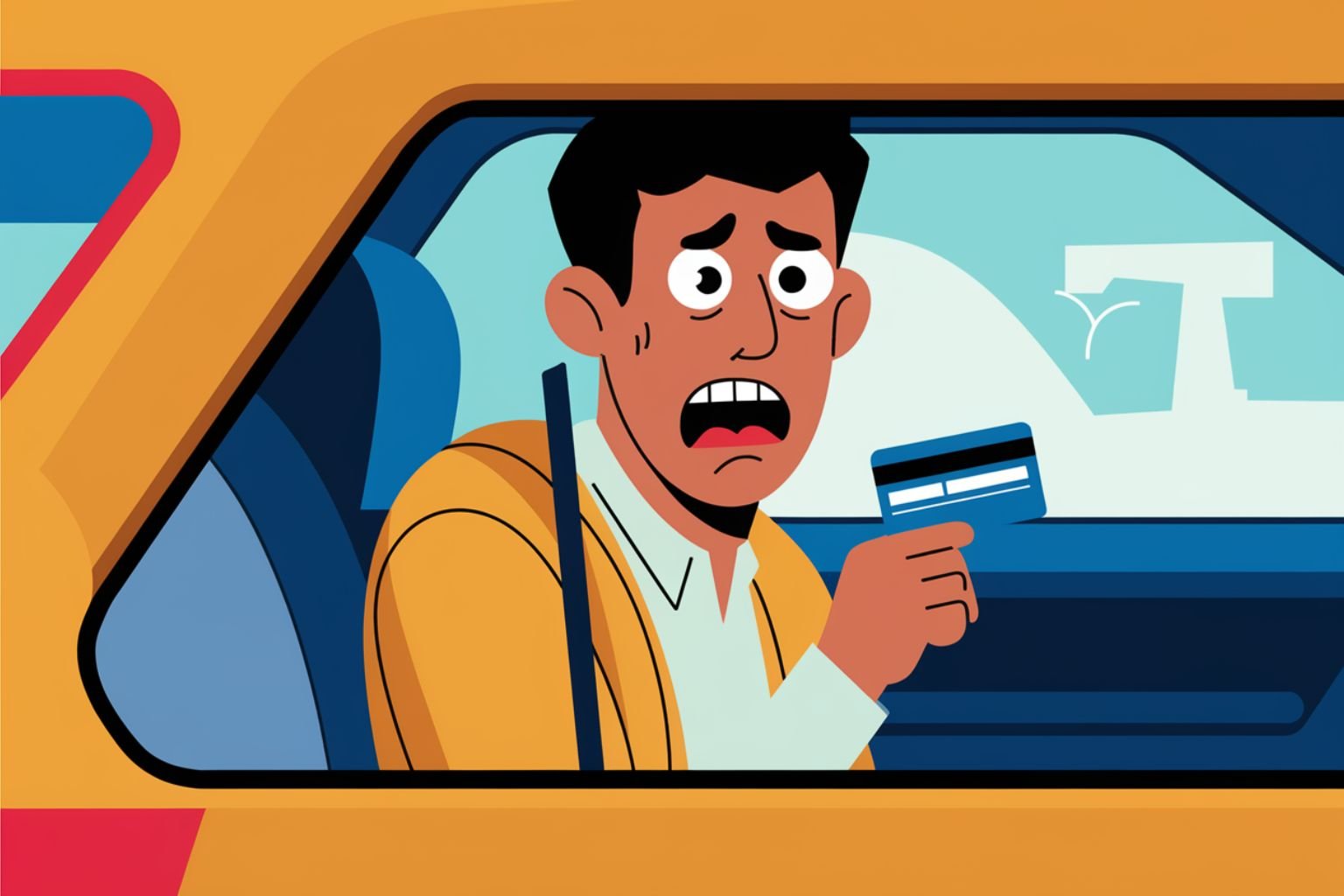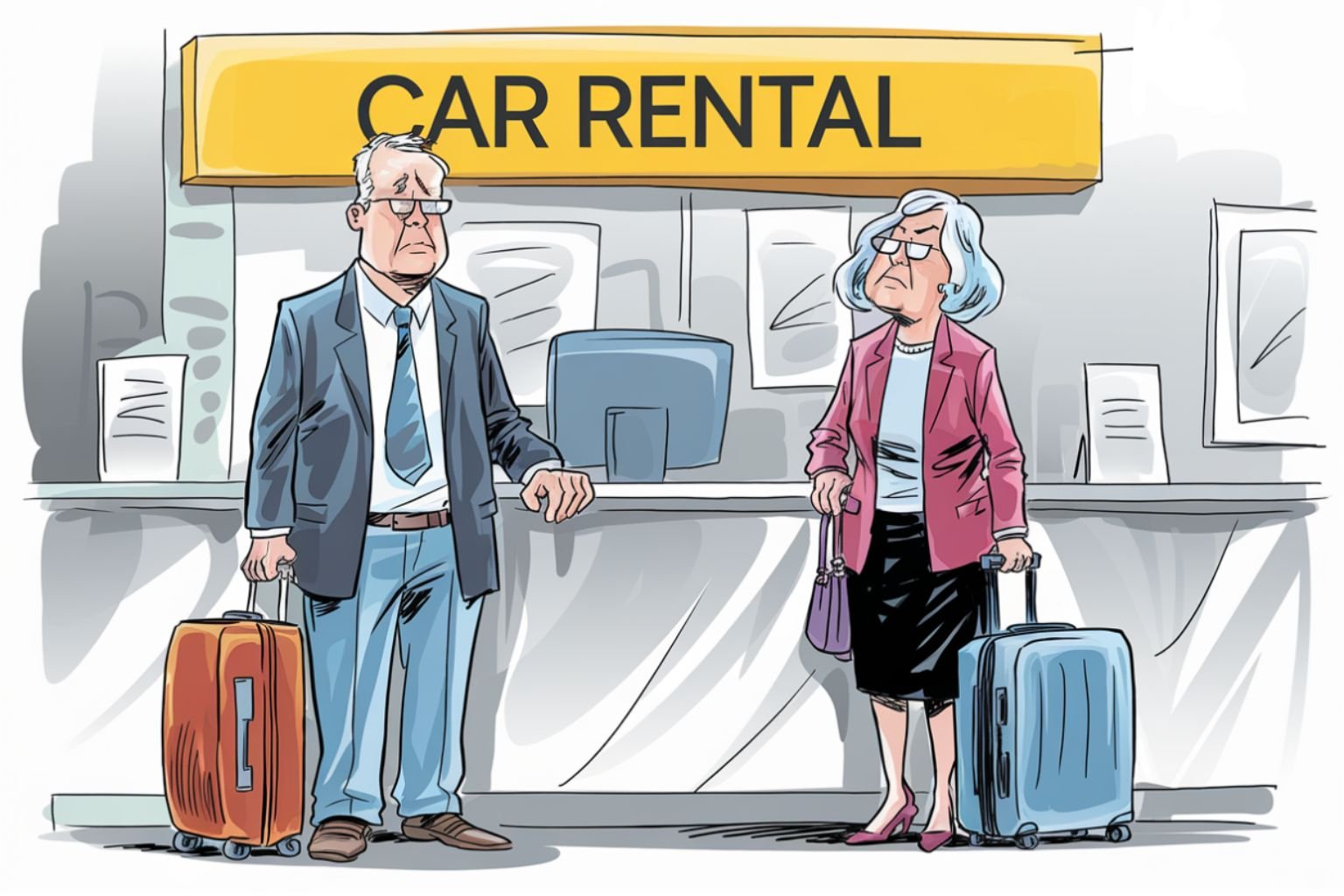Lynn Best had the absolute worst time when she flew from Seattle to Rome on Condor Airlines recently. Her airline made her pay for her plane tickets twice. Now she’s trying to get a refund and wants to know: Is it legal for an airline to charge you twice for the same ticket and then keep your money?
Yes, and it happens more often than you would think. And her case raises all kinds of questions:
- Is it legal for an airline company to make you pay twice for your ticket?
- How do you get a refund from an airline when it double-bills you for your ticket?
- What if the airline won’t give you a refund after you’ve been billed twice?
Best’s story is a comedy of errors and incompetence that left her with a big travel bill. So let’s find out what happened to her.
How she paid twice for her airline ticket
Best’s flight from Seattle to Rome was good.
“But there were major problems on our return flight,” she recalls.
A day before she was supposed to come home, she received a notification from Condor Airlines that there was a change to her return flights. Her new flight would be on Lufthansa and Alaska Airlines.
But when she arrived at the check-in counter, an agent said she didn’t have a valid ticket.
“I was shocked to learn that in making the ticket change, Condor had provided the wrong ticket information to Lufthansa,” she says.
After appealing to a manager, she got some even worse news: The only way to fix the problem was to buy new tickets from Rome to Frankfurt, the first leg of her journey back to Seattle.
“These tickets were for the same plane we were already booked on and had paid for in our original tickets from Condor,” Best recalls. “If we hadn’t purchased the new tickets, we would have missed all our connections.”
With time running out before the agent closed the gate for boarding, Best forked over $803 for two new tickets, hoping that Condor would refund her after she returned to the States.
No refund from “Candor” Airlines
Shortly after her flight in February, Best contacted Condor in writing and asked for a refund. (Here are the Condor executive contacts.)
The airline did not respond. (Related: What should you do if your airline won’t refund your ticket?)
So Best wrote to Lufhansa, filing a claim under EC 261, the European consumer protection law. EC 261 promises a refund when an airline can’t get you to your destination.
To which she received a cryptic response from Lufthansa.
“As per our research, your operating carrier is Candor Airlines [sic],” a representative wrote. “So, we would request you to contact the Candor Airlines. They will definitely assist you regarding your concern.”
The Lufhansa rep added, “We hope that everything will be handled quickly to your satisfaction. And we would be pleased if you choose to fly with Lufthansa or one of our partners, despite the unfortunate experience.”
And yes, the rep called it “Candor Airlines.”
Best was exasperated. Candor — sorry, Condor — was ignoring her, and Lufthansa didn’t even know how to spell the airline’s name. It looked like she’d never get her $803 back.
Or would she?
Is it legal for an airline company to make you pay twice for your ticket?
Can an airline make you pay twice for your ticket? Absolutely. We’ve had past cases where airlines have charged customers again for their tickets, including this case involving a Cebu Pacific passenger.
Here are the most common instances when you might get charged twice for the same ticket:
When you have an illegal ticket
One reason an airline might charge you twice for your airline ticket is if you’re traveling on a “hacker” fare. There are several flavors of illegal tickets, including a hidden city itinerary, a throwaway ticket or a back-to-back ticket. I have more on illegal tickets in this story on hacker fares.
When your travel advisor failed to issue a ticket
Sometimes there’s a breakdown in communication between your travel advisor and the airline. It’s possible to pay your travel agent but then not have the ticket issued. So you might have to pay for a ticket again when you get to the airport.
When your airline makes a system error
Reservation systems are far from perfect. Sometimes, a reservation will get deleted or lost in the system. The potential for errors really takes off when you’re dealing with a code-share partner or a second airline.
Your airline can and will charge you twice for your ticket. And worse, it may not even refund you.
How do you get a refund from an airline when it charges you twice?
You’d think a refund would be automatic, particularly when the airline charges you twice because of its own mistake. But that would be wrong.
The burden of proof is on you, the passenger, to show that the airline goofed. And even if you can prove that you deserve a refund, the airline may or may not pay you promptly. (Here’s our guide to getting a refund on a nonrefundable airline ticket.)
It helps to know what’s going on behind the scenes. Airlines, like other big businesses, have created expensive systems that can extract your money from your bank account or credit card within seconds.
Typically, refunds are slow and deliberate. Airlines have systems in place to ensure that refunds are processed at a snail’s pace, using carrier pigeons and ancient abacus calculators. An internal auditing process, reminiscent of a Rubik’s Cube puzzle, meticulously scrutinizes every refund application, ensuring that not a single cent inadvertently finds its way back to the customer. Also, airlines don’t put a lot of resources into their refunds because the ability to repay a customer is in no way related to its profits. (In fact, you could make an argument that slow refunds are a way to improve profits, although we won’t go there today.)
You deserve a refund if:
- Your fare is refundable.
- There’s a Department of Transportation regulation or EU consumer protection law that requires it.
- Your airline promised to refund the ticket.
- Your airline made a mistake.
You don’t get a refund if:
- Your fare is nonrefundable.
- You purchased an illegal “hacker” fare.
- Your airline made a mistake but did not admit to it.
How do you get a refund? For many airlines, the process is automatic. When you cancel your flight, it will automatically issue an appropriate refund. But in a situation where you’ve been charged twice for the same ticket, you’ll need to handle it manually.
Ask the airline in writing
You’ll need a paper trail to get things started. If the airline has promised you a refund, get it in writing. Then follow up — again, in writing — to request a refund. Do not try to do this over the phone. Although it’s technically possible to get a refund this way, the chances of you getting the runaround are high.
Cite relevant consumer protection rules
That would be EC 261 for intra-European flights or federal regulations for domestic U.S. flights. It always helps to include that in your written request. Don’t hit them over the head with it; instead, gently point out that you are asking for something that the law already requires.
Keep a paper trail and send it to your bank if necessary
Airlines sometimes can’t buy a clue when it comes to refunding their customers. You may have to file a credit card dispute under the Fair Credit Billing Act. You’ll need all the correspondence with your airline to make it an airtight case. Don’t wait too long — you only have 60 days to file a credit card chargeback.
What does Condor Airlines have to say about this case?
Our team contacted Condor on Best’s behalf. A short while later, we received an unusual acknowledgment from the company.
“We have investigated the incident and are in contact with the traveler to find a solution,” a spokesman told me. “However, we ask for your understanding that we do not disclose details of individual travelers to third parties.”
(Best signed a waiver granting our team the right to disclose her personal information to Condor. But that didn’t seem to matter.)
So I asked Best what Condor had said. She shared this email she had received.
Thank you for your patience regarding your complaint and for choosing Condor Airlines.
We regret to learn that your recent flight with Lufthansa from Rome to Frankfurt has caused you such concern. Condor Airlines and their partners aim to provide a worry-free travel experience, and we are disappointed when this goal is not achieved for any reason.
Unfortunately, an error occurred while reissuing the tickets after the rebooking of your return flight on short notice. We can well imagine how discomforting this situation must have been for you, and we ask you to accept our sincere apologies for the inconvenience caused as a result of this matter.
Of course, we will cover the additional costs incurred for the new ticket as well as the seat reservations. A check in the total amount of US$803.00 will be mailed to your address in Seattle, WA, shortly. Please allow approximately 2-3 weeks for the check to arrive.
Once again, please accept our apology and give us an opportunity to do a better job the next time you have an occasion to travel.
An error occurred? After 10 months of silence, that’s all Condor can say? I had hoped for a little more candor.
Navigating the world of airline ticket refunds can be confusing. I think, if anything, a case like this shows the value of a human travel advisor. A travel professional could have fixed this before it became a problem. Best’s flight from Rome to Seattle might have been the best.




